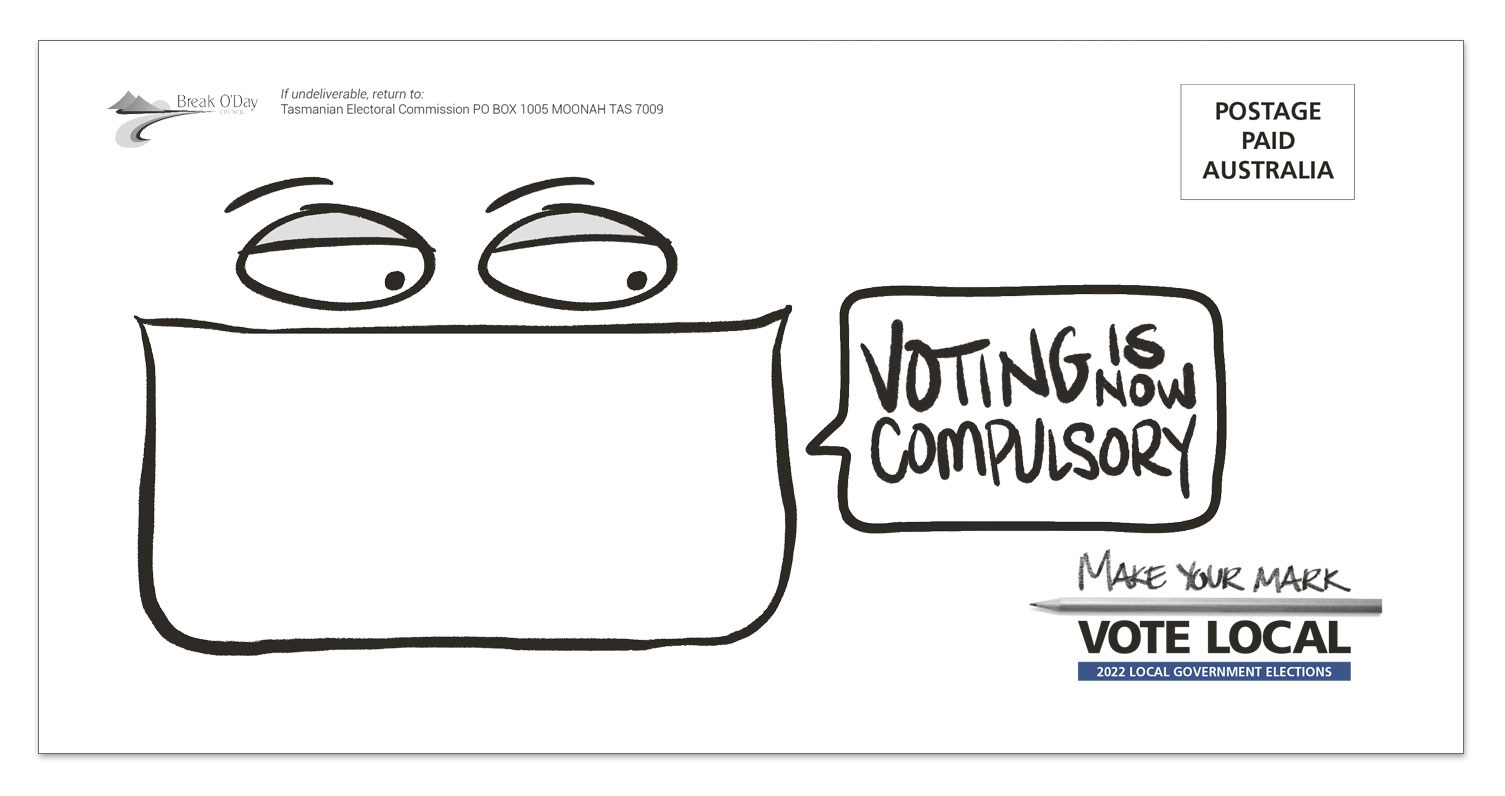
Ballot pack
During the polling period, keep an eye on your letterbox for your ballot pack, which will look similar to this.
Your ballot pack contains all the papers you need to vote in a local government election.
This means there is a 'polling period', rather than one polling day as for State parliamentary elections. Every elector receives their own postal ballot pack at their enrolled address. You then have around 3 weeks to complete and post your vote back to the returning officer for your council.

During the polling period, keep an eye on your letterbox for your ballot pack, which will look similar to this.
Your ballot pack contains all the papers you need to vote in a local government election.
Watch this animation about postal voting in Tasmanian local government elections.
Following the announcement of candidates, postal ballot packs are prepared, printed and packed ready for posting. This step usually takes about a week.
All electors will receive postal ballot packs in their letterboxes. Delivery is usually over the course of a week.
The postal ballot pack contains:
Electors usually have around three weeks (check the timetable for each election) to complete their ballot paper and return it so that it can be included in the count.
To have their vote counted electors must: